From The Americans to Speechless
-
10. Love, Netflix
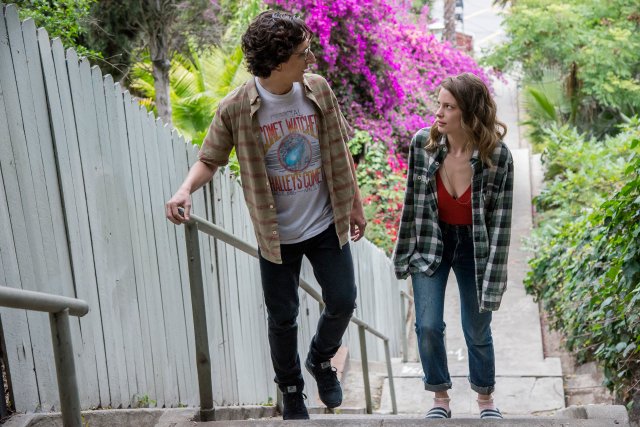
Suzanne Hanover—Netflix By far the best of a recent wave of TV series about the search for human connection in Los Angeles (yes, it’s a legitimate genre by now), Love comes on slowly. Its beginning, depicting the stop-and-start progress of functioning addict Mickey (Gillian Jacobs), has its frustrations, as any story about an addict will. And yet Mickey’s deep flaws make her lovable (though, crucially, never likable) to viewers in the right mindset long before she is to herself. The same is true of the pedantic Gus (Paul Rust), a tutor with dreams of stardom as a writer—he’s a snob and a jerk, but the soul his defenses hide, once revealed, is in its way beautiful. The slow process by which Mickey and Gus come together after a chance meeting draws upon a sophisticated understanding of human nature as well as real openness to life’s odder possibilities. Those possibilities include the frustrations and annoyances that are part of any real-life love story; they also include redemption.
-
9. Speechless, ABC
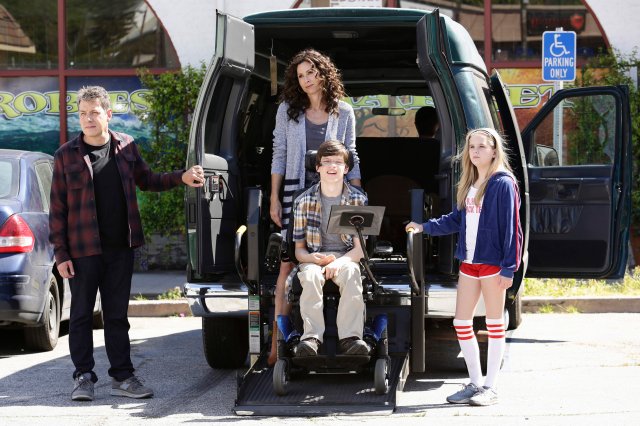
Nicole Wilder—ABC The newest neighbor in ABC’s inclusive block—one that includes the great Black-ish and Fresh Off the Boat—may be the most welcome yet. Speechless, a show about the life of a family whose nonverbal son has cerebral palsy, is clear-eyed about the challenges families touched by disability face. It’s also brutally funny. As matriarch Maya DiMeo, Minnie Driver gets through anyone standing in her son’s way through sheer force of wit; while all three of the actors playing her children distinguish themselves, Micah Fowler (who has C.P. in real life) deserves special mention for wringing charm and wit out of each moment he’s onscreen without a single word. The DiMeos make real sacrifices—financial and emotional—in order to provide for one another. That Speechless is equipped to depict these sacrifices without giving up its hard-won sense of humor makes it a dispatch from a tough, loving America all of us should be lucky enough to inhabit.
-
8. Veep, HBO
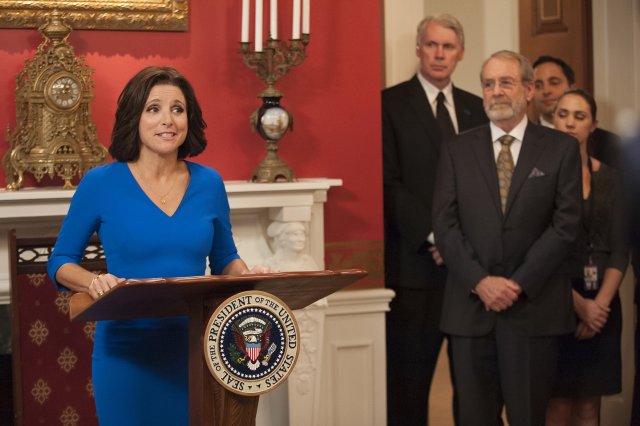
HBO The venerable political comedy—like its fellow shows about D.C. lowlifes, House of Cards and Scandal—was substantially outpaced by real life this year. No matter: What makes Veep great has less to do with its fealty to real-life politics than its laserlike focus on real personalities. Selina Meyer (Julia Louis-Dreyfus) was at her most juicily complicated this season, simultaneously relishing her fleeting presidency and watching it slip away from her. The high point of what’s been Louis-Dreyfus’s strongest run of episodes in her career may have been “Mother,” in which Meyer grieves the loss of her power at a family funeral. TV’s best show about politics is now a masterful look at the psychic effects of disempowerment.
-
7. Better Call Saul, AMC
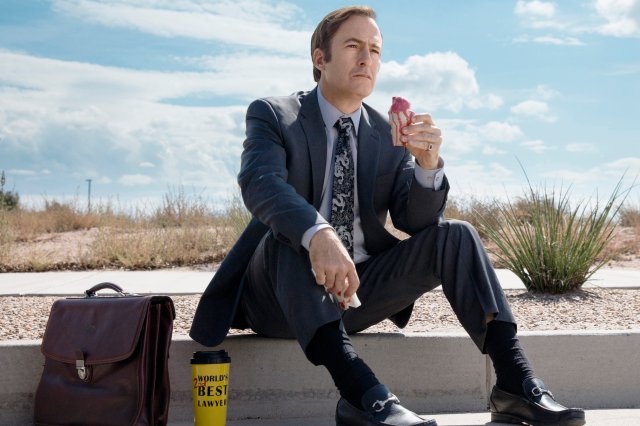
Ben Leuner/AMC In its second season, the Breaking Bad spinoff transcended its source material. This no longer felt like the origin story for a character from another story. This tale, of an aspiring lawyer’s endless battle with his less noble impulses, stood on its own as one of TV’s very best dramas. Yearning to impress his brother as a serious attorney and yet burdened with the knowledge that his true aptitude is for grifting, Jimmy McGill (Bob Odenkirk) underwent a moral journey whose twists—his slip-ups, his futile attempts at redemption—were both pettily human and larger-than-life. Rhea Seehorn, playing Jimmy’s frustrated paramour and fellow lawyer Kim Wexler, emerged as one of TV’s ablest stars, a more established attorney for whom rebellion against a system determined to crush her spirit is just a fantasy.
-
6. O.J.: Made in America, ESPN
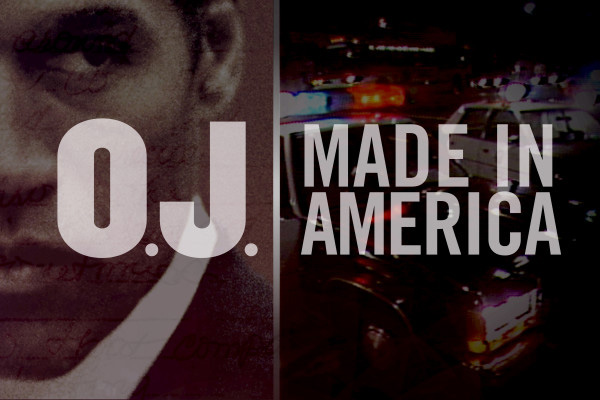
ESPN It’s a somewhat brutal coincidence that this virtuosic series aired after The People v. O.J. Simpson seemed to have exhausted all possible conversation about the trial. But the two projects actually complement each other beautifully. The fictional FX series is content with a cipher at its center, plumbing just about everything but Juice’s psyche; the ESPN documentary (which is being submitted to the Academy Awards as a single, very long film) pursued the former football star’s motivations with a singleminded obsession. Tracking Simpson’s life from star athlete unconcerned with the social-justice concerns that obsessed his peers to disgraced would-be reality TV performer, director Ezra Edelman finds stunning footage to tell his story. The verdict? In Edelman’s telling, Simpson spent his life trying to outrun his race, only to see his white friends abandon him after the racially divisive trial—and after that, his appetites doomed him. That two projects as accomplished as 2016’s two O.J. stories could coexist does more than testify to the beautiful breadth of TV these days: It shows us just how multifariously relevant the Simpson story, presumed for too long to be half-forgotten tabloid trash, really is.
-
5. Atlanta, FX
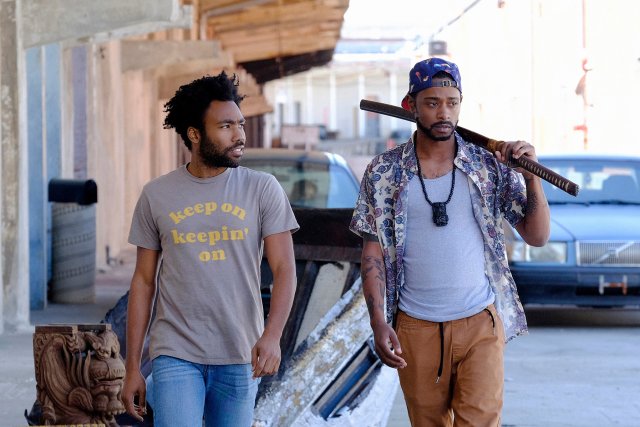
Guy D'Alema—FX A wealthy white optometrist throws a Juneteenth party at which he recites poetry about racial justice to his wife’s black friends. A kids’ cereal commercial depicts a mascot getting brutalized by police for trying to steal a bowl for himself. Justin Bieber shows up to take part in a charity basketball game, and he’s black now. Atlanta depicts the very real struggles of Earn (show creator Donald Glover), a verging-on-not-young aspiring rap manager scraping by in Georgia’s capital. It also surrounds him with surreality, as if the intractability of America’s weirdness around issues of race has morphed the very nature of the world. Part of a wave of superlative shows that embraced the subjective points-of-view of characters less commonly seen on TV—including FX’s Better Things, Amazon’s One Mississippi, and HBO’s Insecure—Atlanta manages to stand out on the strength of its fully developed vision. The show is plugged into social concerns without being performatively “woke”; that’d be too easy. Atlanta feels, gratifyingly, like it knows far more about its world and its characters than it’s willing to give up too quickly.
-
4. Late Night With Seth Meyers, NBC
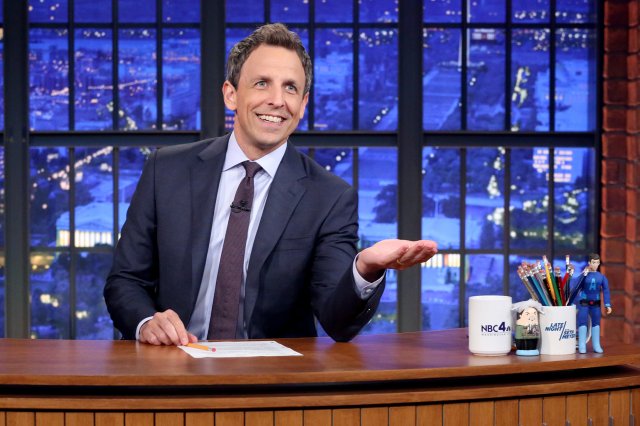
Lloyd Bishop—NBC/NBCU Photo Bank/Getty Images Television comedy had a mixed record in dealing with the election—and, in the main, established TV outlets seemed caught flat-footed by the Trump phenomenon. That makes Seth Meyers’s accomplishment on NBC’s Late Night all the more impressive. Alone on the networks, Meyers was able to infuse the framework of conventional late night with a meaningful, nourishing awareness of what was happening throughout the election. His “A Closer Look” segments, devoting meaningful airtime to comic examinations of the day’s news, stand out as both for their best-in-field humor and their plainspoken ability to cut to the heart of political debates in ways that news anchors, caught up in debates over equivalency, could never do. With a nod to Samantha Bee’s terrific TBS debut, Meyers is the breakout TV star of the election, and it’s heartening that he’s far from done: In his perfectly pitched post-election monologue, Meyers did more than mourn. He magnanimously offered hopes that Trump supporters did not come to feel forgotten by their candidate, and then promised the president-elect, “We here at Late Night will be watching you.”
-
3. The Americans, FX

FX This was the best run of episodes yet for the show that is making the best argument for dramas going more than a single season. Miniseries’ pleasures are legion, yes, but only on a show with the rich, textured history of The Americans could the fights cut quite so deep. This year, Keri Russell and Matthew Rhys’s married Soviet spies faced a series of existential threats: Various pieces of human collateral needed to be dealt with, but the family couldn’t dispose of indiscreet daughter Paige (Holly Taylor). But even after they seemed in the clear, both partners faced down grave doubts about their chosen lines of work that they channeled differently, with Rhys’s Philip getting into New Age philosophy and Russell’s Elizabeth just getting angry. One way or another, the family’s life will radically change—the Cold War is drawing to a close. But the show’s daring contemplation of what it means for a married couple to grow distant, and the pain of that uncoupling, gives rise to one of the year’s richest viewing experiences. Catch up before season five, and start from the beginning.
-
2. The Girlfriend Experience, Starz
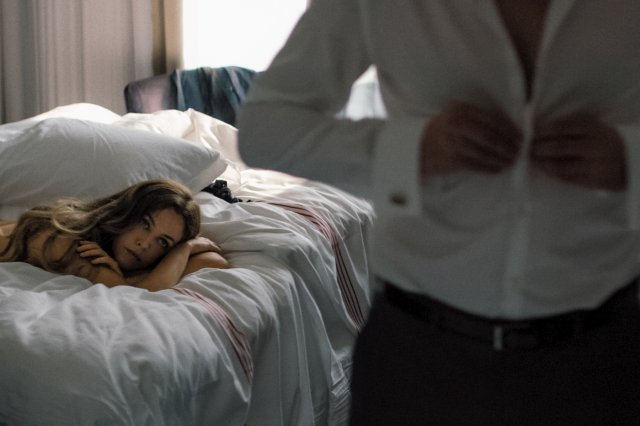
Starz Entertainment This film-to-TV adaptation of Steven Soderbergh’s 2009 recession-era prostitution parable seemed like a deeply unnecessary project. It ended up becoming the best show you haven’t heard of. Riley Keough takes over the role of Christine, a “girlfriend experience” call girl, providing the well-heeled a partner who can join them for dinner or a tropical vacation, not just an hour. Her steely determination to remake herself into both a successful sex worker and a successful corporate lawyer (why not both?) fits neatly into the show’s biggest alteration from its source material. The show is firmly planted in the era of the unapologetic one percent. Christine finds herself moving through an endless, deadening succession of minimalist hotel lobbies and restaurants, keeping her game face on while fighting back against a tape leaked as retaliation by a past partner. The show’s pivot into a story of surveillance and doxxing is proof that it’s attuned with the dark energy of our times. So is Christine’s fragmented self, lending her a virtuosic ability to present only the sides of herself she wants to be seen and denying her, perhaps, an inner life. It’s a sacrifice she doesn’t mind.
-
1. The People v. O.J. Simpson: American Crime Story, FX
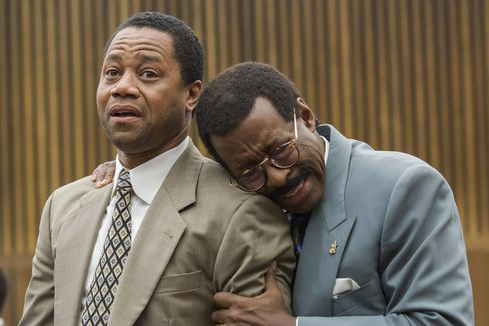
Prashant Gupta/FX What else is there to say? This majestic piece of television said it all over the course of ten episodes of unparalleled sophistication and confidence. Gender, race, class, and celebrity all butted up against one another over the course of Simpson’s trial, as the series laceratingly shows. The series is at once merciful to its characters—everyone from widely-mocked defender Johnnie Cochran (Courtney B. Vance) to hated prosecutor Marcia Clark (Sarah Paulson) gets given back their humanity—and relentless in its depiction of their complicity in a system that, on many levels, failed to deliver justice. The depth of the show’s ideas make one wish there was, somehow, more, but the show’s remarkable cohesion of rhetorical and visual style makes a compelling case for the miniseries as TV’s perfect form. The season’s ending, with Simpson (Cuba Gooding Jr.) freed but a pariah, was the stuff of Greek tragedy—and the show’s creators, not shy about being showy, pitched it, perfectly, at just that level.